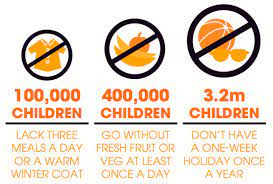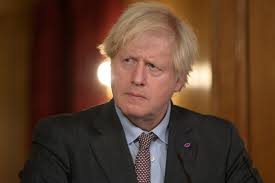Britain-workers, pensioners and poor households are hit hard by the rising cost of living
The independent Office for Budget Responsibility (OBR) states that Brits are facing “the biggest fall in living standards in any single financial year since ONS records began in 1956-57”
The British
workers, pensioners and poor households have been hit hard by the rising cost
of living. The prices of fuel, energy and food are going up and inflation reached
to a historic high of 8.2%. The wages have lost pace with rising inflation. The
incomes are falling but cost of living is going up every month. The workers,
pensioners and poor are feeling the impact of economic crisis.
From April,
average household energy bills will rise from £1,277 to £1,971 and in autumn to
about £3,000. Inflation, as measured by the retail price index, is already at
8.2% and expected to hit 10% soon. Wages are not keeping pace. The wages are
not increased compare to the inflation.
In 1976, at
the height of trade union membership, workers’ share of the gross domestic
product (GDP), in the form of wages and salaries reduced was 65.1%. At
the end of 2019 workers’ share of GDP declined to 47.8% a rate of decline
unmatched by any other European country. 42% of all disposable household income
in the UK goes to the top 20% of households, whilst 7% goes to the 20%.
Millions
don’t have the buffer to meet rising food, energy, housing, and other costs.
The median household gross savings in the UK is £12,500 and 25% of
households have less than £2,100.
Instead of
redistribution, the government has used taxation policy to squeeze the less
well-off. The poorest 10% of households pay 47.6% of their income in direct
and indirect taxes, compared to 33.5% by
the richest 10% of the households. The government is hiking national insurance
(NI) by 1.25 percentage points from April. It has frozen tax-free personal
allowance and income tax thresholds. Consequently, an additional 1.5 million
people will start paying income tax, while 1.2 million will move into a higher
tax bracket.
With a 54% hike in energy costs and more to come later in the year, the Chancellor could have restored the triple-lock on the state pension i.e., increased it by 8% but did not do so.
Pensioners receive Winter Fuel Payment (WFP) of £100-£300 and that has remained unchanged since 2011. Despite massive increase in the price of energy, the government has not increased WFP.The young
are hit particularly hard though the Chancellor did not mention that in his
speech at all. Student debt in England is over £161bn. It is repayable and
subject to the interest rate of retail price index (RPI) plus 3%. This means
that graduates will soon be facing interest rates of 11%-12%. With an average
debt of £50,000 they are expected to find an extra £6,000 a year that is in
addition to higher food and energy costs. The OBR analysis is that graduates
will be hit by £11bn in 2022-23 alone and by a total of £35bn over the
next five years.
There are no
changes to corporate taxes. Banks, supermarkets, oil and gas companies are
making record profits but will not be subject any windfall tax.
With an eye
of the next general election, the Chancellor has promised to cut the basic rate
of income tax from 20% to 19% in 2024. So, the money collected by freezing
personal allowances and income tax thresholds and higher national insurance
charges will be recycled into a tax cut. This will do nothing for 18.4
million people surviving on income of less than £12,570.
Despite the
hype, the government has done little to help people navigate the immediate cost
of living crisis. No attention has been paid to the causes of poverty. The
challenge for the left is to develop policies which will give people hope,
dignity and a better future.














Post a Comment